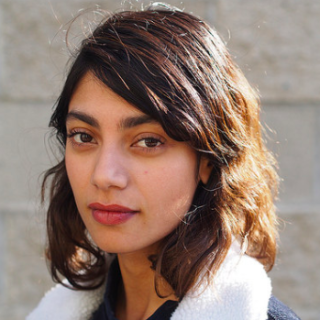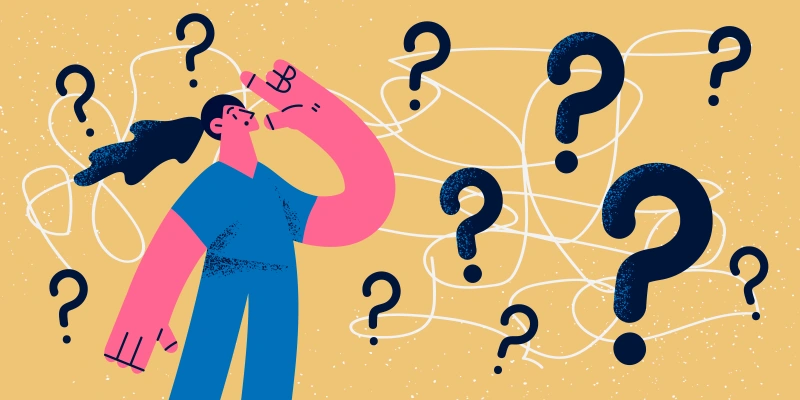 My mother’s face reflected the steely light of the bedside monitor as she sat with her eyes closed in a green plastic chair. One hand lightly covered her face while the other rested on my grandmother’s—her mother’s— leg where it had been massaging away a biting cramp. This marked the eighth night that my mother had spent in a chair in a hospital room instead of her own bed.
My mother’s face reflected the steely light of the bedside monitor as she sat with her eyes closed in a green plastic chair. One hand lightly covered her face while the other rested on my grandmother’s—her mother’s— leg where it had been massaging away a biting cramp. This marked the eighth night that my mother had spent in a chair in a hospital room instead of her own bed.
It was my second week of medical school and I was studying for several rapidly approaching exams in the darkness of a private room in the Intensive Care Unit.
“You should go, I can watch her,” I whispered.
My mother slowly opened her eyes. I could see that the enormity of her exhaustion was getting to her. “Are you sure?”
“Yes, go. I’ll call you if we need anything.”
After helping my mother gather her things and shooing her out the door, I sank down into a chair by the bed. It was late. Light from the nurse’s station outside pooled near the door, demarcating the restful darkness of the room from the hallway.
I opened my laptop and peeked at my grandmother’s face over the top of the screen. She was frowning at something in a dream. The violet glow of the laptop and the soft drone of the machines made me feel sleepy. Depictions of cellular activity looked back at me from the screen.
All these tiny movements in the body must sound like music. Phosphorylation cascades are harp glissandos, hormonal action the slow pull of a bow across a cello. As the body dies, does the music get softer or louder?
I reached out and touched my grandmother’s arm softly. Her skin was warm, finely plisséd with wrinkles.
I opened another file, this one a lecture on biomechanics.
“The force of a traumatic injury will come into the body at a certain angle, with a certain amount of force, at a certain speed, to a certain distance. At the depth to which the force penetrates to, the body can store the force, create an anchor (hook), or the force can disrupt the tissue, like a fracture. The force vectors are often palpable, and can stay in the body for years, unless they are discharged.”
I re-read these words. My grandmother’s sleeping breath struggled through the plastic mask cutting into her face. I imagined invisible arrows stuck in her frail body, each one a vector of trauma. Coating her skin like the quills of a porcupine were tiny pin-like arrows for every hungry child she was not able to feed on the streets of Calcutta. Jagged, cruel arrows for each beloved sibling she had lost. And the most fearsome vector of all, my grandfather’s early death: a sword that must have entered her body through the very earth, piercing her tongue and locking her to the ground, engulfing her in a wounded stillness for the last thirty years of her life.
All of a sudden, I was in my second month of medical school. I had been up studying since 4:30 a.m. and now found myself driving over a sparkling vastness of water toward home. The road looked odd, as if wrapped in cellophane. The world outside of medical school seemed to operate on a different time frame. For weeks I had been seeing drug names in my dreams as entities.
At home, my mother called me in tears. She wanted to confront the doctors responsible for my grandmother’s care.
“But you seemed so happy with their care at the time,” I said, confused.
“She was just a little sick when she was admitted, how could it have gotten so bad so quickly?
I did not think my grandmother was just a little sick when she was admitted. I tried to explain that she was very ill, and that hospital-acquired pneumonia routinely kills people much younger and healthier than her every year. My mother remained unconvinced.
“Why couldn’t the doctors give me a good answer for what actually killed her?” she asked angrily. “They kept changing her diagnosis.”
“Sometimes they just don’t know. They can’t stop death.”
“You are training to be a doctor, so of course you are on their side,” my mother said. “You wouldn’t understand.”
The weight of this accusation made the gravity in the room feel stronger.
“I could not give my mother the last thing she wanted, a simple cup of tea,” she said. “You don’t know what that feels like.”
“Tea,” she said hoarsely. My grandmother was suddenly wide awake.
I turned the lights on in the room. “I’m so sorry,” I told her. “But I can’t give you any tea right now.”
“Tea,” she begged of me. “Water. Tea. Please, I’m so thirsty.”
“I can’t give you any tea, I’m so sorry,” I repeated, feeling like an actual monster. “You might choke on it. The nurses will make me leave the room.”
“Please, some tea,” she continued as if she didn’t hear me. “Don’t let me die without a last sip of tea.”
I panicked and found myself reaching for an explanation of my grandmother’s behavior that would shield me from complicity in an enormous cruelty. My grandmother is begging for tea because of some malfunction in her dying brain, I told myself. If she were well, she would understand why I could not give it to her. The silliness of this rationalization frightened me. I felt an awareness emerging that this turning toward mechanistic explanations was just a way to escape true intimacy, to avoid sitting with the massive weight of grief.
The next morning, family and friends flowed in and out of the room. They held my grandmother’s hand and wept openly. I remembered an old photograph from my parent’s wedding, with my grandmother and some other women lifting their faces to the sky, mouth open, tongues rolling in electric ululation.
Many hours later and at the insistence of my family, I packed up my things to go home and rest for my exam the next day. I looked at my grandmother for the last time. Though she seemed to be suffering, in reality she was fast asleep in the merciful embrace of a synthetic opioid. Keeping this knowledge close to my heart, I silently said goodbye to her and walked out the door into the orchid-colored evening.
Jayinee Basu is the author of a book of poems titled Asuras. Her debut science fiction novella titled The City of Folding Faces is forthcoming from Lanternfish Press. She is currently a second-year medical student at Touro University and based in Oakland, CA.






